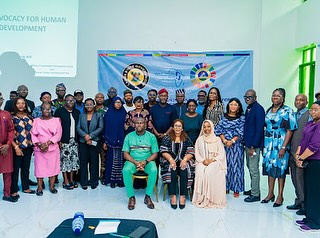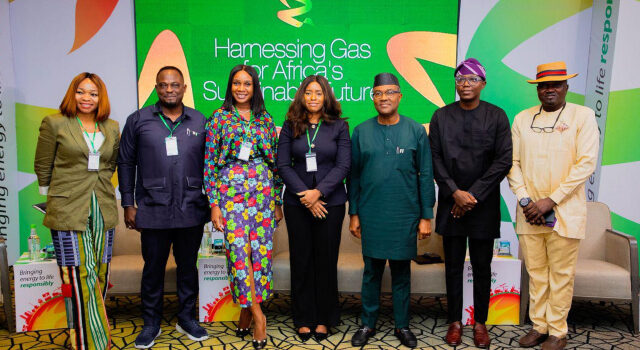In a significant push to improve human capital outcomes and data-driven development in Lagos State, the Office of Sustainable Development Goals, in partnership with Africa Human Capital Development Plus (HCD+), convened a high-impact advocacy workshop for Monitoring and Evaluation (M&E) Officers.
The workshop, themed “Strengthening Monitoring and Evaluation for Human Capital Development”, held at the Dover Hotel, Ikeja, includes Monitoring and Evaluation Officers across MDAs and Public Affairs Officers in LGAs.
Delivering the Welcome Address, the Permanent Secretary of the SDGs Office, Mrs. Kaphayah Olayemi Sarumi, emphasised the strategic relevance of the workshop in enhancing performance measurement, evidence-based governance, and accountability within the state’s development ecosystem.
“This workshop is not just another item on our calendar. It is a strategic intervention – one rooted in the urgent need to strengthen capacity, deepen understanding, and mobilise critical action for Human Capital Development (HCD) in Lagos State,” she remarked.
She applauded the technical partnership with Africa HCD Plus, noting their unwavering support in accelerating data-driven human capital outcomes across Africa. The Permanent Secretary explained that Monitoring and Evaluation Officers play a pivotal role as “translators of impact,” whose work in data collection, analysis, and dissemination is central to informed decision-making and sustainable policy implementation.
In his Goodwill Message, Director of the Lagos Bureau of Statistics, Mr. Bashiru Oseni-Ope, highlighted the importance of accurate and timely data as the bedrock of developmental planning and urged participants to embrace the tools and knowledge shared during the training fully.
He emphasised that the Lagos State Government is making significant investments in data gathering and analysis as a strategic pillar to enhance the Human Capital Development (HCD) campaign and drive the successful localisation of the Sustainable Development Goals (SDGs).
According to him, part of the efforts to strengthen the data system and infrastructure include robust capacity-building initiatives for officers to equip them with nascent knowledge of contemporary data collection methodologies, digital tools, and analytical frameworks that reflect the complexities of today’s governance realities.
He reiterated that only through a well-trained and data-literate workforce can the State achieve impactful and people-centred development.
To translate knowledge into measurable impact and develop actionable strategies for improving HCD indicators across their respective MDAs, the workshop featured a series of technical lectures and interactive sessions designed to equip participants with critical tools and insights.
Some of the lectures delivered during the training include: Objectives for M&E Teams and HCD/SCD Relationship; Techniques for Monitoring and Evaluating the Effectiveness of Advocacy Efforts Targeting HCD Issues; Existing Sources and Quality of HCD Data; Importance of Data Disaggregation for Human Capital Development Indices; Building a Culture of Data Advocacy: Engaging Stakeholders for HCD and How to Advocate for Better HCD Data.
The workshop had in attendance the Management staff of the Office of SDGs, the Africa HCD Plus Technical Team and Officials from the Lagos Bureau of Statistics.






